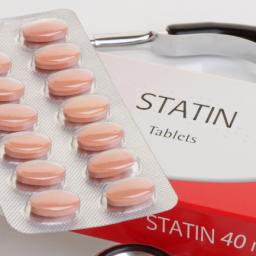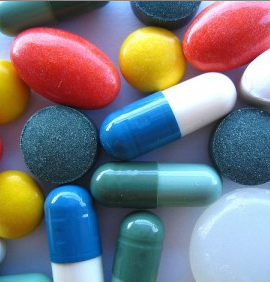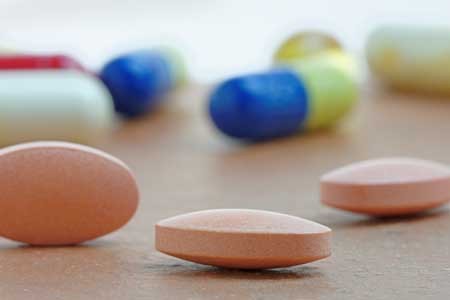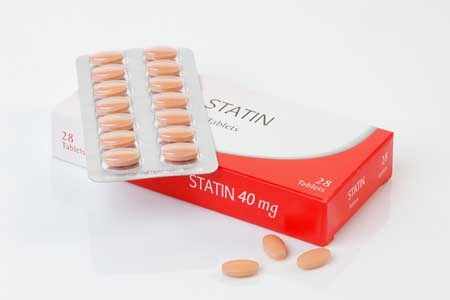Danish Population-Based Study Identifies New Drug Candidates for Bipolar Disorder

At the 2020 meeting of the International Society for Bipolar Disorders, Lars Kessing of the Psychiatric Center Copenhagen described a study that examined incidence of bipolar disorder among a total of 1,605,365 participants who purchased one of six common medications over a ten-year-period, with the goal of identifying drugs that might be repurposed to prevent or treat bipolar illness. The drugs were non-aspirin nonsteroidal anti-inflammatory drugs (NSAIDs such as ibuprofen), low-dose aspirin, high-dose aspirin, statins, allopurinol, and angiotensin.
Because Denmark has population-based healthcare data, the researchers were able to identify participants who purchased these medications between 2005 and 2015, and could also assess these participants for two outcome measures: 1) whether they had received a diagnosis of mania or bipolar disorder as an inpatient or outpatient at a psychiatric hospital, and 2) a combined measure of whether they had received a diagnosis for mania or bipolar disorder in any setting or initiated lithium use. The data on these participants were compared to a random sample of 30% of the population of Demark.
Kessing and colleagues found that among those with steady use of low-dose aspirin, statins (used to lower blood cholesterol), and angiotensin agents (which can lower blood pressure), there was a significant decreased incidence of mania/bipolar disorder on both outcome measures.
In contrast, among those taking non-aspirin NSAIDs and high-dose aspirin, there was an increased incidence of bipolar disorder. (There were no statistically significant findings with regard to allopurinol, which is used to treat gout and kidney stones.)
The researchers concluded that population-based studies such as these can be used to identify drugs that may have secondary benefits, in this case low-dose aspirin, statins, and angiotensin agents, which have already been identified as potentially therapeutic in other research.
Newly Identified Effects of N-Acetylcysteine
 In a talk at the 2019 meeting of the International Society for Bipolar Disorders, researcher Michael Berk, who was responsible for some of the initial findings on the effects of the antioxidant N-acetylcysteine (NAC), summarized some of the newer findings about the treatment.
In a talk at the 2019 meeting of the International Society for Bipolar Disorders, researcher Michael Berk, who was responsible for some of the initial findings on the effects of the antioxidant N-acetylcysteine (NAC), summarized some of the newer findings about the treatment.
NAC has been found to be effective in bipolar depression and in the treatment of both positive and negative symptoms of schizophrenia. It also helps in the avoidance of cocaine, alcohol, tobacco, and marijuana. It can reduce habitual behaviors such as gambling, obsessive compulsive disorder (OCD), and trichotillomania (compulsive hair-pulling) and irritability and motor stereotypy (repeated movements) in autism.
A 2016 study by researcher Sudie E. Back and colleagues in the Journal of Clinical Psychiatry found that NAC improved symptoms of post-traumatic stress disorder (PTSD) in veterans who also had depression and substance use disorders at a dosage of 2.4 grams/day.
According to Berk, NAC also reduces the incidence of lithium-related renal failure and reduces mitochrondrial toxicity. One study reported that it improved working memory in patients with schizophrenia.
In his talk, Berk also noted that statins offer an interesting new avenue for treatment. Several studies have suggested statins can improve mood or reduce the likelihood of a depressive recurrence. Angiotension-active drugs (inhibitors) have also been reported to decrease the incidence of depression and to improve cognition.
Statins Have Many Benefits
 Patients with mood disorders and elevated lipids, cholesterol, or triglycerides can get several benefits by taking statin drugs. Patients with depression are at increased risk for cardiovascular disease, heart attack, and stroke, and statins can lower these risks. Statins lower cholesterol and triglycerides.
Patients with mood disorders and elevated lipids, cholesterol, or triglycerides can get several benefits by taking statin drugs. Patients with depression are at increased risk for cardiovascular disease, heart attack, and stroke, and statins can lower these risks. Statins lower cholesterol and triglycerides.
Compared to women not taking statins, women taking this class of medications have a lower risk of depression. Men taking statins have a lower incidence of depression following a heart attack than men who are not taking statins.
Several studies over the past two decades have suggested that statins can also decrease the incidence of Alzheimer’s disease, though a 2017 article by Julie M. Zissimopoulos and colleagues in the journal JAMA Neurology suggested the effectiveness of statins in preventing Alzheimer’s may depend on the race and gender of the person taking them. People with depression are at increased risk for Alzheimer’s.
Editor’s Note: Given these many benefits, it may be a good idea for patients with depression or bipolar disorder and high lipid levels to talk to their physician about whether statins would be a helpful treatment for them.
Combination of SSRIs and Statins Better than SSRIs Alone
A large study in Denmark suggests that taking selective serotonin reuptake inhibitor (SSRI) antidepressants alongside cholesterol-lowering statin drugs improved depression more than SSRIs alone. The findings, by Ole Köhler and colleagues were reported in the American Journal of Psychiatry in 2016.
The study included 872,216 people in Denmark’s national health care database who took SSRIs between 1997 and 2012. The most common SSRIs were citalopram, sertraline, and escitalopram. Of these people taking SSRIs, 13.0% also took a statin drug, typically simvastatin. Those patients who were taking both an SSRI and a statin were less likely than those taking an SSRI alone to be hospitalized for any psychiatric problem, or for depression specifically.
Depression is known to be correlated with inflammation throughout the body. Statins reduce this inflammation as well as lowering cholesterol. A 2013 study by Ahmad Ghanizadeh and Arvin Hedayati in the journal Depression and Anxiety showed that the SSRI fluoxetine and the statin lovastatin reduced depression severity compared to fluoxetine alone.
The combination of SSRIs and statins did not seem to reduce deaths or suicidal behavior compared to SSRIs alone. Statins have some side effects, but combining them with antidepressants did not increase the risks associated with their use.
Inflammation Linked to Post-Stroke Depression
A 2016 study in the journal Psychoneuroendocrinology confirms that high levels of inflammatory cytokines in the blood are linked to higher risk of depression following a stroke.
The study, by Hee-Ju Kang and colleagues, followed 222 stroke sufferers for one year. Two weeks following the stroke, their levels of inflammatory cytokines IL-6 and IL-18 were measured. They were also assessed for depression both at the two-week point and one year later. The researchers also observed whether or not the participants were treated with statins, which are often prescribed to lower stroke risk and also have anti-inflammatory effects.
Those participants who had depression following their strokes (either at two weeks or at one year) tended to be older, to have a history of depression or stroke, to have a more severe stroke, and to have a stroke location toward the front of the brain.
Having any depression following the stroke was associated with higher levels of IL-6 and IL-18. This was particularly true of those participants who were not taking a statin. Among those taking statins, the statins may have interfered with the link between inflammatory cytokines and post-stroke depression. In the statin group, the only significant finding was a link between levels of IL-6 and depression at the two-week mark.
Meta-Analysis Suggests Statins Can Help Treat Depression
Depression and poor cardiovascular health often go hand in hand. Now it seems a treatment for high cholesterol may also help treat depression. A 2016 study by E. Salagre and colleagues in the Journal of Affective Disorders analyzed evidence from 3 earlier studies of drugs called statins, which inhibit an enzyme needed for the production of cholesterol, for people with depression.
The three studies included a total of 165 participants taking an antidepressant (citalopram or fluoxetine) for moderate or severe depression. Of these participants, 82 were prescribed an additional statin (lovastatin, atorvastatin, or simvastatin), while the remaining were given a placebo. After 6 to 12 weeks, those who had received a statin reported greater improvement in their depression than those who had received a placebo in addition to the antidepressant. No serious side effects were reported.
These data are also consistent with other studies showing that women on statins had fewer depressions over subsequent years than those not taking statins.
More Evidence that Statins Can Reduce Depression in People with Acute Coronary Syndrome
Many studies have linked depression and cardiovascular problems. The solutions may also be linked. A new study found that patients with depression and acute coronary syndrome saw their depression improve most when they took the selective-serotonin reuptake inhibitor (SSRI) antidepressant escitalopram and statins (used to lower cholesterol), while depression improved least among patients who took neither type of drug. Statin use was linked to improvement in depression after one year, while escitalopram was not. In a subset of the study, use of lipophilic statins in particular was linked to improvement in depression.
The study, published in 2015 by S.W. Kim and colleagues in the journal Translational Psychiatry, suggests that statins can improve depression regardless of antidepressant use, but combining statins with an SSRI may have an even more powerful effect on depression.
Statins Reduce Drug-Craving in Mice
 Statins are drugs that are typically used to lower cholesterol. Recent research on the drugs has focused on their effects on the brain.
Statins are drugs that are typically used to lower cholesterol. Recent research on the drugs has focused on their effects on the brain.
In 2015 Claudia Chauvet and colleagues reported in the journal Neuropsychopharmacology that the brain-penetrating statins simvastatin and Atorvastatin reduced cocaine seeking behaviors in mice that were taught to self-administer cocaine and then were denied access to it for 21 days compared to pravastatin, a statin that does not penetrate the brain as thoroughly. The researchers found that the brain-penetrating statins also reduced nicotine seeking, but not food reward seeking. The statins also worked in mice that had stopped seeking cocaine but relapsed due to stress, allowing them to abstain from cocaine seeking again.
Statins are considered a very safe treatment in humans. The ability of statins to prevent relapse to addictions in mice may mean that one day they could be used to treat addictions in people as well. A review article by Cassie Redlich and colleagues in the journal BMC Psychiatry in 2014 indicated that statins may reduce recurrence of depression in people. The researchers found that simvastatin had a protective effect while Atorvastatin was associated with increased risk of depression, so the choice of statins may be important for both depression and addiction.
Statins Can Prevent Cardiovascular Risk in Patients with Mental Disorders
 People with major mental disorders such as schizophrenia and bipolar disorder are at increased risk for medical symptoms including overweight, obesity, high cholesterol or triglycerides, diabetes, and the metabolic syndrome, all of which increase risk of cardiovascular disease (heart attack), cerebrovascular disease (or strokes), and other medical difficulties. In a 2013 review article in the journal Bipolar Disorders, researcher Chittaranjan Andrade discussed the use of statins to prevent cardiovascular events in people with major mental disorders.
People with major mental disorders such as schizophrenia and bipolar disorder are at increased risk for medical symptoms including overweight, obesity, high cholesterol or triglycerides, diabetes, and the metabolic syndrome, all of which increase risk of cardiovascular disease (heart attack), cerebrovascular disease (or strokes), and other medical difficulties. In a 2013 review article in the journal Bipolar Disorders, researcher Chittaranjan Andrade discussed the use of statins to prevent cardiovascular events in people with major mental disorders.
Statins decrease lipids, and have significant benefits in decreasing cardiac events, but their use is low among psychiatric populations. Psychiatric patients often receive less cardiac care. It may be up to their psychiatrists to push for aggressive prevention of cardiac illnesses.
The most significant side effect of statins is the possibility that they can increase risk of diabetes. In a meta-analysis by Preiss et al., intensive dosing with statins increased the risk of diabetes but also lowered the risk of cardiovascular events. In a year, 1,000 patients would get two extra cases of diabetes but 6.5 fewer cases of cardiovascular events. For patients at high risk for heart attack or stroke, a cardiovascular event is more dangerous than diabetes, so it makes sense to treat these patients with statins. In patients at lower risk, there is some evidence that diabetes risk was a problem mostly in patients with other risk factors for diabetes, including metabolic syndrome, impaired fasting glucose levels, a body mass index of 30 kg/m2 or higher, or glycated haemoglobin A (1c) above 6%.
Most studies of statins are conducted on patients in middle age, but there is a rationale for treating even younger patients with statins. Patients with bipolar disorder develop cardiovascular disease more than a decade earlier than controls. There is some evidence that cholesterol deposits in arteries begin even before age 20, and are cumulative. The risk-benefit ratio for statin use improves with years of use, so starting it earlier may lead to better prevention. Long-term use may reduce the risk of Alzheimer’s disease and Parkinson’s disease and some cancers in addition to reducing heart attacks and strokes.
Despite the risk of diabetes, it is important to consider statin use in psychiatric patients, especially those who receive antipsychotic medications. Read more
Statin Benefits for Mood, Brain, and Heart Seem to Outweigh Diabetes Risk
 Statins are a class of drugs that are the most commonly prescribed treatment for high cholesterol. They can reduce risk of heart attack and stroke in people with a history of cardiovascular disease. New research is beginning to clarify statins’ other effects, which on the negative side can include increased risk of diabetes and liver and muscle inflammation, and on the positive side can include reduced risk of cataracts and prevention of depression and dementia.
Statins are a class of drugs that are the most commonly prescribed treatment for high cholesterol. They can reduce risk of heart attack and stroke in people with a history of cardiovascular disease. New research is beginning to clarify statins’ other effects, which on the negative side can include increased risk of diabetes and liver and muscle inflammation, and on the positive side can include reduced risk of cataracts and prevention of depression and dementia.
In late 2012, the American Heart Association Scientific Sessions included a discussion of five new studies suggesting that the cardiovascular benefit of taking statins is worth the slightly increased risk of diabetes. Researchers at the conference explained that cardiovascular events are much more serious than the small increase in risk of diabetes. While all five studies showed an increase in diabetes risk, the absolute increase was low and depended on the patients’ level of risk prior to treatment and how high their doses of statins were. There are strategies that can reduce diabetes risk in statins users, including using bile-acid sequestrants, reducing niacin, and monitoring glucose. Consensus at the conference was that statins’ cardiovascular benefits are so important that the drugs shouldn’t be avoided because of concerns about diabetes.
In addition, statins’ beneficial effects on mood have been reported for several years. In 2010, an epidemiological study by Pasco et al. in Psychotherapy and Psychosomatics showed that subjects without depression were less likely to develop a new onset of depression if they were treated with statins compared to those who were not. Stafford et al. reported in the Journal of Clinical Psychiatry in 2010 that patients taking statins had a 79% decreased likelihood of depression at 9 months of follow-up. Moreover, a 2012 meta-analysis by O’Neil et al. in BMC Medicine reported that overall, statins had positive effects on mood.
A recent huge Taiwanese study of statins suggests that the drugs can also prevent dementia. At the European Society of Cardiology congress in 2013, Tin-Tse Lin reported that among 58,000 people studied, those taking the highest dosage of statins had a threefold decrease in risk of developing pre-senile and senile dementia. He explained that it was the potency of statins such as atorvastatin and rosuvastatin that provided the cognitive benefit. However it is high doses that lead to less benign side effects such as liver and muscle inflammation.
A separate US study presented at the congress showed that statin use also lowered risk of developing cataracts by 19%.





